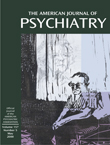The
Journal recently published a “Position Statement on Psychiatric Treatment and Sexual Orientation” that had been approved by the Board of Trustees of the American Psychiatric Association
(1). That statement correctly cautions mental health professionals that there is little scientific evidence to support the efficacy of treatments designed to change sexual orientation. That statement was intended to address the matter of homosexuality and to take a clear stand “against discrimination, prejudice, and unethical treatment…, including discrimination on the basis of sexual orientation” (p. 1131).
The psychiatric profession still correctly considers pedophilia to be a mental disorder. However, like heterosexuality and homosexuality (orientations that differ from one another on the basis of differences in sexual attraction), pedophilia, too, can be thought of as a sexual orientation that is different from others on the basis of age of attraction. As with other sexual orientations, irrespective of the relative contributions of genetics and environment, maturing individuals discover the nature of their own attractions; such attractions are not the consequence of a volitional decision. Historically, untold numbers of human beings have been both demonized and vilified simply because their sexual makeups differ from the norm.
In the case of pedophilia, society must insist, for good reason, that persons who are sexually attracted to children are forbidden from acting on these attractions. As with alcoholism, such persons need to have access to effective treatments that can enable them to successfully resist succumbing to unacceptable temptations. However, just as has been the case historically with homosexuality, society is currently addressing the matter of pedophilia with a balance that is far more heavily weighted on the side of criminal justice solutions than on the side of mental health solutions.
Individuals whose sexual orientation is directed toward children manifest the same range of personality, temperamental, and character traits as individuals whose sexual orientation is directed toward adults. A recent
Journal article
(2) documented that the vast majority of individuals with pedophilia showed no evidence of either antisocial or narcissistic personality disorder. It may be no easier for a person with pedophilia to change his or her sexual orientation than it is for a homosexual or heterosexual individual to do so.
Without condoning sexual misconduct (and without equating the consequences of acting on an attraction toward children with the consequences of acting on attractions toward adults), the American Psychiatric Association should develop a contemporary policy statement regarding pedophilia. It should encourage nondiscriminatory and objective public policies and professional education, increased availability and access to appropriate psychiatric care, and the immediate establishment of an intensive research effort to more effectively address this important societal and mental health issue.

